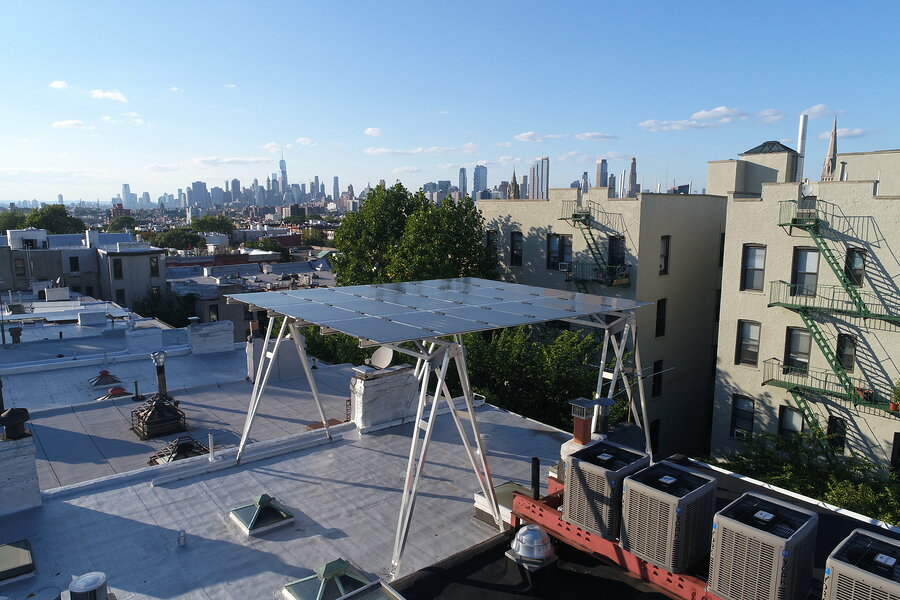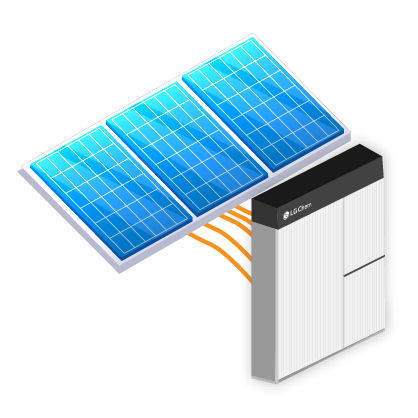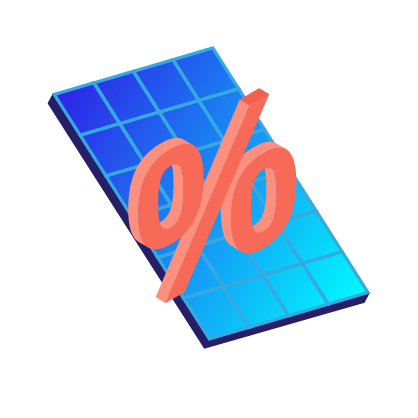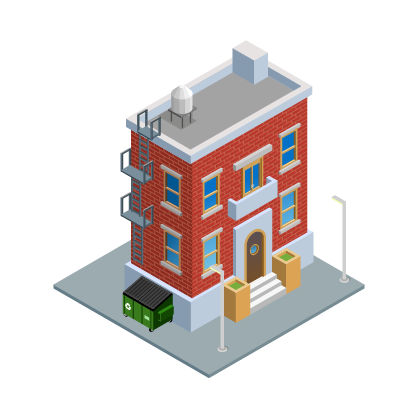Brooklyn Solar Works Solar Canopy: The Comprehensive Review
As everyone knows, space is tough to come by in New York City. The same holds true when designing rooftop solar arrays.
The city is known within the solar industry for it’s tough permitting and fire code restrictions around solar PV, so engineers have had difficulty identifying sufficient space for solar panels to generate the electricity necessary to offset customer usage.
Brooklyn SolarWorks’ Brooklyn Solar Canopy is an aesthetic, adjustable rooftop structure that makes going solar easier for city dwelling homeowners.
The Brooklyn Solar Canopy’s design attributes factor in fire code regulations for roof accessibility and durability to weather elements, resulting in a product that increases a rooftop’s capacity for generating solar power by 200 percent.
Founded in 2015, Brooklyn SolarWorks is a flat roof solar canopy installation specialist, focusing on homes in New York City. The team set out to improve utilization of roof space on the brownstones and row houses in and around Brooklyn, leading to the modular solar canopy.
In short, canopies overcome many barriers that make solar tough in dense cities by creating and enhancing space.
Check out this introductory video for what it looks like in real life.
We sat down with Christopher Neidl, Brooklyn SolarWork’s Director of Business Development, to learn more about why this new solar solution works so well for New Yorkers.
What are the benefits of installing a Solar Canopy in NYC rather than a traditional flush mounted system?
In short, canopies overcome a lot of barriers that make solar tough in dense cities, while creating and enhancing that scarce resource that all New York homeowners desire more of: space.
1. Overcome Different Roof Obstructions
As far as home solar markets go in the U.S., New York City is pretty unique both from a building stock and building/fire code perspective, both of which introduce barriers to more conventional solar installation methods.
The typical roof of a Brooklyn townhome is flat and small. It’s also crowded with obstructions like hatches and skylights that are irregularly scattered across the roof, differing from building to building.
These conditions make it difficult to easily install decent sized systems that fully meet household energy demand.
In contrast to suburban homes, they also make it very hard for solar installers to use standardized, repeatable designs – which adds time, cost and uncertainty, therefore impacting profitability.
2. Overcome System Shading
Another problem is the shade.
New York is a dense physical environment. In this context, it’s almost inevitable that some shade – from a taller adjacent building, a tree, a party wall or something else – will fall on a some section of a roof.
3. Satisfy NYC Fire Code Regulations
Maybe the biggest impediment to solar in NYC is the local fire code, which requires large sections of already small and constrained flat roofs to remain empty and unobstructed so that fire fighters can access them in the event of a fire.
This means that lots of space that could otherwise host solar panels is therefore off limits.
4. Creates Recreational Space
Finally, in a city where space itself is an enormous asset, people increasingly want to put their roofs to use.
This can be either for AC equipment or for amenity uses like decks and green roofs.
So that means there is competition for roof space between these potential options, which can force a homeowner to make a choice: solar or X?
Canopy installations overcome all of these problems. First, they rise not only above hatches, skylights, compressors and other obstructions, but also above the fire code.
When solar is elevated at least 9 feet in the air, the NYC fire code clear space requirements no longer apply. This allows for much larger solar systems to be installed.
Homeowners don’t have to choose between solar or a roof deck, they can have both. And in fact, because the canopy brings shade and water protection, it boosts the value and usefulness of a deck investment.

The Brooklyn Solar Canopy rises above roof obstructions, and local fire code complications
For many roofs in NYC, solar simply isn’t an option without a canopy.
From an installer perspective, in addition to allowing for larger and therefore more lucrative projects, canopies also increase standardization for design and installation, saving time and effort.
Is there an additional cost to install a solar canopy?
Brooklyn SolarWorks’ canopies add about a 15% premium compared to a standard rooftop solar array.
This is because:
- Canopies enable larger systems, prices are proportionally impacted.
- The added structural materials associated with the canopy have additional costs.
Importantly, all of the canopy equipment costs are included and proportionally offset by available local, state, and federal incentives for solar, including the 30% federal solar tax credit. This is because it’s an integrated part of the solar array.
What are the differences between commercial and residential canopy installations?
You may have seen commercial parking lots covered with canopies and are wondering why bringing the canopy to residential properties is so groundbreaking. Below are a couple of reasons:
- Price – Commercial canopy options have to meet certain structural requirements, such as concrete foundation and steel structures. Residential projects have more flexibility in a material choice that varies in price.
- Design – Residential projects also have more flexibility in design, so long as the panels are lifted 9 feet above the surface. This allows for multi-purpose customizable projects.
- Utility – The space created underneath the canopy is more versatile, which is especially important in places like NYC where space is already a scarce resource that many homeowners desire more of.
What makes the Brooklyn Solar Canopy unique?
Canopies are a relatively new solution in New York. Some installers customize canopy solutions for each project. This can be costly, and full of uncertainties.
Brooklyn SolarWorks, by contrast, has developed a standard canopy product with local architects and engineers which it has been installing all over the borough of Brooklyn for three years and is now selling to other installers in NYC and nationally.
The patent-pending, award-winning canopy – the output of a 10-month design collaboration – was designed specifically for flat roof Brooklyn homes.
It’s visually elegant, extremely robust, versatile and easy fast to install. And after 100 installations in Brooklyn, it’s proven.
Are solar canopies the right solution for you?
If you’re thinking about going solar and wondering if the solar canopy is the right system design for your home, consider these three things:
- Do you have a flat roof? Solar canopy’s like Brooklyn SolarWork’s are designed specifically for homes with a flat roof. Learn more about going solar with a flat roof house.
- Does your roof have many obstructions? If your roof has too many obstructions for a full system to be placed on it, a solar canopy will help by setting the array above all of these obstacles.
- Have you spoken with an unbiased expert? Working with an advisor like Solar.com’s hassle-free process will help you understand if a solar canopy is truly necessary for your home. We present you with free designs and multiple quotes from solar companies, including Brooklyn SolarWork’s canopy solution, without needing to negotiate with installers individually.











